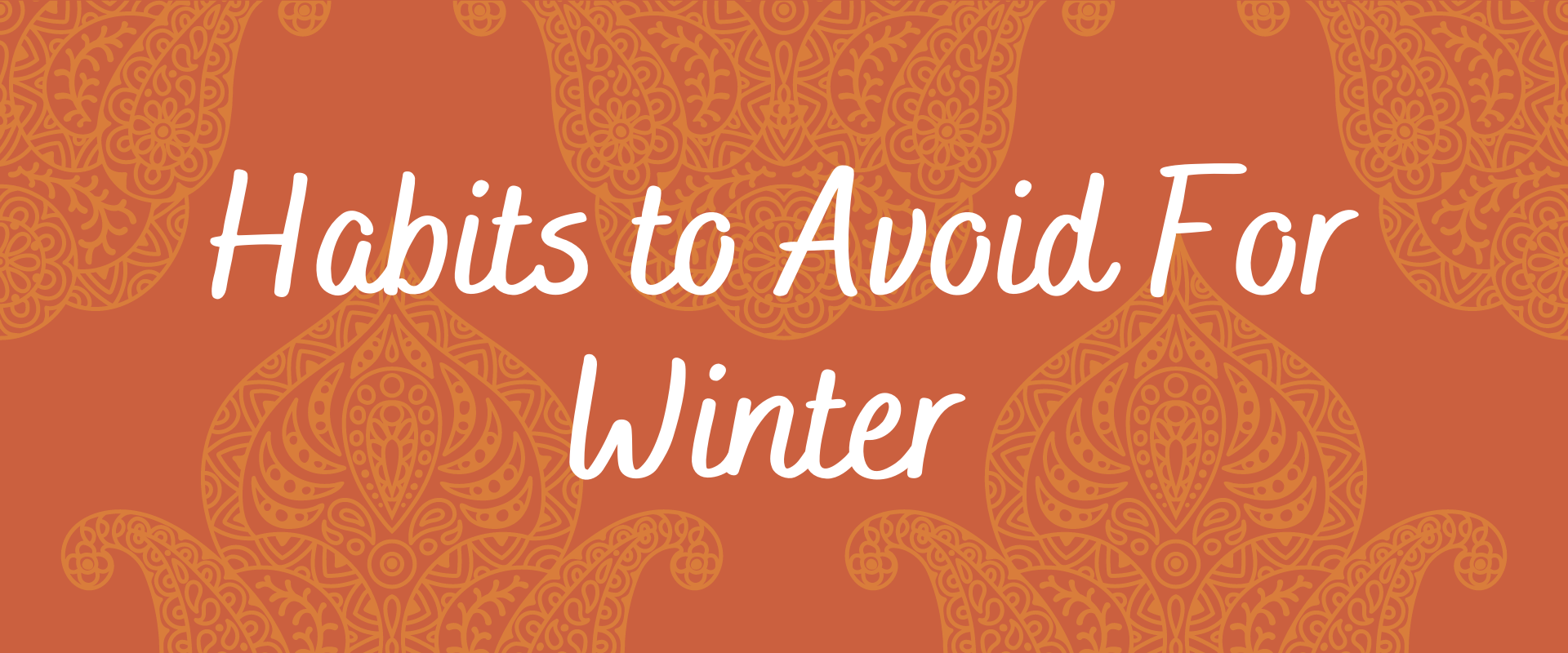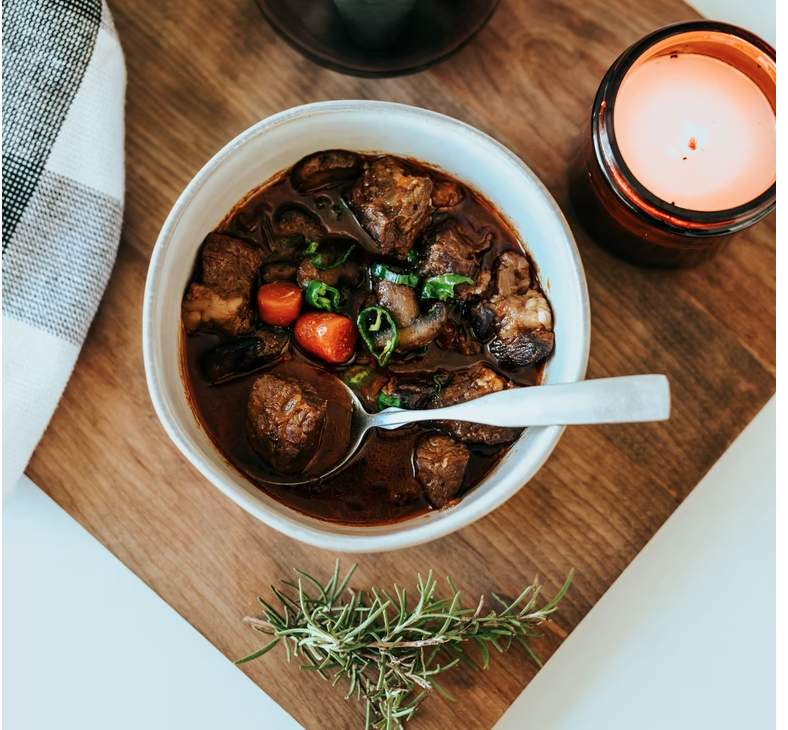As the Sun is in the southern hemisphere this time of year, in the northern hemisphere we are feeling colder, and maybe even experiencing extreme low temperatures.
The low temperatures of winter close the pores of our skin, therefore allowing more heat to be contained in our body.
With this, our digestive fire is also better contained in the body. This can really be in our favor, as this helps promote greater body strength and the building of strong tissues through our food.
However, this benefit can be hampered if we do not make sure to stay in balance…

To support strong digestive fire– foods of sweet, sour, and salty qualities are advised. This is because these qualities decrease Vata in the body.
Due to the cold environment, Vata is naturally going to increase in the body (remember, cold is a core quality of Vata), which if allowed will cause depletion to our tissues.
Hence, with the right quality and quantity of food, Vata is kept in check, and our body tissues are able to build (muscles, fat, blood etc).
Quantity of food, and Ayurveda’s “rules of eating” are equally important:
Eat only when hungry
Eat so you are not too full, leaving room for digestion


Warm, cooked, and unctuous (not dry) foods consisting of sweet, sour, salty tastes.
Note: Pomegranate has both sour and sweet tastes and is great for digestion.
Meat soups, lentil soups, vegetable soups, and most stews with vegetable/meat/chicken broth are good choices.
Grains – wheat, corn, barley, millet, rice are recommended. This constitutes as sweet taste.
Sesame oil, olive oil, ghee and butter are good choices for cooking, to create unctuous quality. Ghee is also considered sweet.
Nuts can compliment your diet at this time of year as they are heat producing.
Caution: By Spring, cut down on nuts to 4 per day maximum.
Note: Check out featured recipe below!

Daily exercise regimen- This is recommended, as the body is naturally equipped this time of year with good strength.
Note: Remember to exercise at half your capacity or else you will throw off Vata.
Daily or regular self oil massage- This helps keep Vata at bay. Sesame oil is recommended for general use.

Avoid skipping meals or fasting- This aggravates Vata and leads to Vata issues like bloating, or headaches.
Avoid long daytime naps- Kapha is already predominant in Winter, and daytime sleeping brings an increase in Kapha.
Avoid baths or showers at nighttime- This increases Kapha due to the water element that is predominant in Kapha
So, why are the right foods and habits so important?
Maintaining balance– by preventing excess Vata or Kapha– will allow Kapha to go through its natural increase this time of year, and provide its appropriate benefits for our minds and bodies.
Vata and Kapha balance also means lower chances of falling sick in the later winter months during the major flu season– which occurs due to Vata and Kapha aggravation.

Featured Recipe
Apricot coconut bites
1 cup chopped dried apricot
1 cup almond meal
0.5 cup chopped dates
0.25 cup dessicated coconut
0.5 tsp cinnamon pwdr
I tsp lemon/orange zest
2 tblspns coconut oil
Mix all n shape into balls. Refrigerate for 30 mins. Warm slightly before eating.
Optional: Add ½ tsp ginger powder, you might need slightly more oil to bind.
My goal…
As an Ayurvedic Practitioner, I want to help you bring Ayurveda to life in your daily habits, so that you know how to maintain good health through the many changes of life.
This week, I want to help you adapt properly to the changes of seasons, in order to prevent illness and more serious conditions from developing later on.
This week, I invite you to be aware of changes to YOUR lifestyle during Winter.


